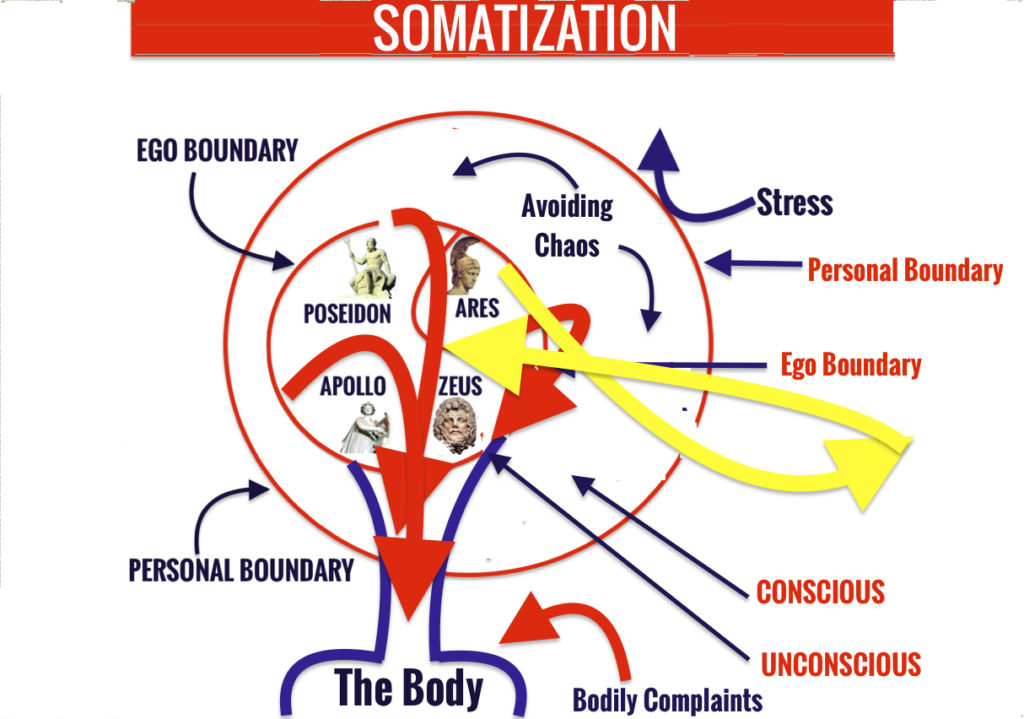This is the unconscious process of taking negative feelings or instincts originally directed towards others, but which are in violation of one’s morals or character - for example, “hating” a dying grandfather - and redirecting them at oneself: pain, illness, and anxiety. It is exemplified by sayings such as, “I make myself sick.”
Somatization highlights the concept of the reptilian brain’s relation to control of the body, in that, if instincts are bursting out into the psyche and beyond, into the social environment, since they also control the body, it makes sense that they could, as an alternative direction, simply be unconsciously, unwittingly redirected back into the body. This then, might for a time, theoretically, relieve the psyche of the conflict and uncomfortable emotion. Take note that it is the same kind of modality of mental processing as that of conversion, but is in a maturity class higher.
For example, when you are in a relationship in which there is pain or resentment, that could be against your wishes consciously to bring out in a fight right now, since the marriage ceremony is about to take place, or the baby is about to be born. You might find that you or your partner now develops an inexplicable pain in the stomach or somewhere else in the digestive tract at this time.
It is an interesting concept to know of, that when we are fetuses, our brain develops out of the same original tissue as the gut, called ecotoderm. As a result, both gastroenterologists and neurologists the world over find that what medicines and disease processes affect the brain - for example, both major depression and the medicines in the Prozac family - also affect the gut functioning. And what affects the gut - for example, Crohn’s Disease - also may have behavioral ramifications not just emerging from the stress of having an illness - for example, developing depression.
When it comes to the unconscious, the reptilian brain and the “id,” what affects the body, affects the brain, and what affects the brain, affects the body.


